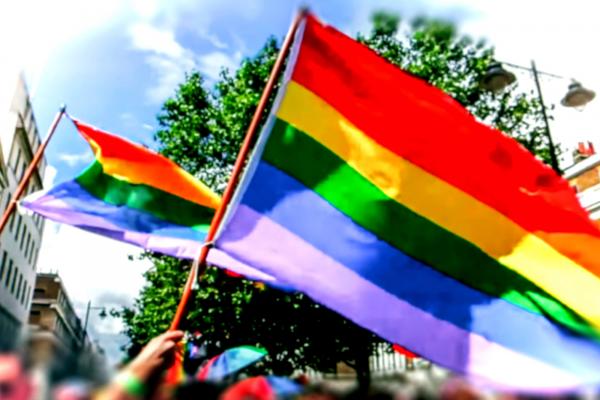Sixteen years ago as a college student at Wake Forest University, Justin Lee created a website for LGBT Christians with the goal of creating a small online community. Now, the Gay Christian Network is a cornerstone organization in the LGBT Christian community. Its annual conference is credited as the largest gathering of LGBT Christians, many of whom have found a home within the community the organization has fostered. On July 20, the organization and Lee parted ways, saying in a joint statement that they “have come to realize they have differing perspectives on the operational needs of the ministry.”
In interviews, board members and Lee said a legal agreement prohibited them from offering specifics about the separation. While the two parties call split amicable, a board member has resigned, and some supporters have announced on social media they’re pulling support. One longtime supporter, Marty Jacobsen, forwarded a letter explaining his his decision to cancel.
“I believe that it is the nuanced and careful articulation of values and beliefs that Justin put forth as founder and director at GCN that allowed me to come out of the toxic religious environment I came from,” the letter reads in part. “... but if the board doesn't believe in Justin's vision, then GCN is not the organization I started supporting.”
Lee says he’s crushed by the decision, but plans to move forward with his faith organizing work in Christian spaces on sexuality and gender identity. In a conversation for Sojourners, writer and founder of FaithfullyLGBT Eliel Cruz talked with Justin Lee about what’s ahead for Lee, the Gay Christian Network, and LGBTQ Christians in America.
This interview has been condensed for length and clarity.
Eliel Cruz, Sojourners: While you can’t legally speak to the specifics, many of GCN’s supporters are upset at what they call is a lack of transparency with the decision to separate. Do you have anything you would like to say to them?
Justin Lee: I’ve already said as much about the situation publicly as I can. I definitely understand that desire for more information and transparency. … Unfortunately, in this case, there’s just only so much that I’m able to say.
I’ll say again that I appreciate folks’ prayers for everybody involved. I want to focus on the future and on the really important work out there that still needs to be done.
Cruz: What is one thing you would change about your time, or work, leading GCN and what is one thing you think the organization did really well?
Lee: As I think back on all those years, I can think of a number of individual situations and decisions where in hindsight I think, “Oh gosh, it would have been better if I did this instead of that.” If I could go back and talk to myself 16 years ago, I think one thing that I would tell myself would be to take some management classes and prepare earlier for the growth of the organization.
But I think in spite of all of that, I’m really proud that the 16 years we worked so hard to maintain a reputation for being a legitimate, Christian organization [were] really all about a focus on Christ and Christianity.
I’m glad we were able to make the type of impact on people’s lives that we made. I have to say that — I’m certainly proud of my piece in that, but it’s not sort of a personal feather in my cap. That is God working through a lot of incredible people who came together for a shared purpose.
Cruz: In moving forward, I know you’re finishing a draft on a second book. What is it about and when can we expect it to be published?
Lee: I am finishing up the manuscript for a book about the polarization in our world today. On how we can respond to it. Essentially, when there are issues that are really important and you can’t just agree to disagree and let it go at that — and yet, you have difficulty talking, sometimes even within your own family, who are on the other side of these issues, who you just don’t see eye to eye with because we’re so polarized — what do you do? How can we talk to each other in a way that actually moves things forward, and makes change where it needs to be made, in a world where we’re so far apart?
Cruz: What type of work that you will be doing? What does that look like?
Lee: I have a lot of ideas and a lot of things that I’m excited to work on, and I also want to remain open to the possibilities that come. …That includes getting more high-quality video, audio, and written content out there on faith, sexuality, and gender, in a way that helps move these conversations forward. Stuff that provides support and resources for LGBT Christians, and also to advance the dialogue in Christian spaces that have traditionally been non-affirming, where there is still a lot of work to be done — and a lot of it is still “LGBT 101” stuff.
I’m going to be continuing to write and speak. I really want to do more to help get more diverse voices out there to help a lot of LGBTQ+ and allied Christians to tell their stories — to help give a platform to folks who may not feel that they have one.
With or without GCN, I recognize that I have a certain platform. I want to keep speaking out with my own voice, from my experience, as this evangelical kid who realized he was gay and struggled for so many years to figure out what that meant.
Cruz: As someone who has been in this conversation for a long time, what are your thoughts on the current faith, sexuality, and gender identity and where we’re going?
Lee: We’ve come a long way. The world looks really different now than when it did two decades ago when I first was getting started. And it looked different two decades ago than it did a decade or two before that, because of a lot of the work of tremendous folks who came before you or me.
Understanding is continuing to increase in Christian spaces. It’s exciting to me to see more and more LGBT Christians stand up and be counted and be heard and be unafraid to share their stories as Christians. That’s phenomenal.
I think that we have a danger though, for those of us who have supportive communities — it’s really easy for us to feel like, “The work is done, everybody gets it, except for maybe a few extremists out there.” That’s just not the case. The reality is in the United States, and around the world, there are lots and lots of LGBT folks and their families who feel incredibly alone in Christian spaces.
I think it’s still important to keep the dialogue open with folks that are not affirming in a way that recognizes where they’re coming from, but also recognizes our own needs as human beings. There’s kind of a tough balance. It’s a tough place to be. But I’m really encouraged by the progress we’re making, and I think we’ll see a lot of change continue to happen over the years ahead.
Got something to say about what you're reading? We value your feedback!







